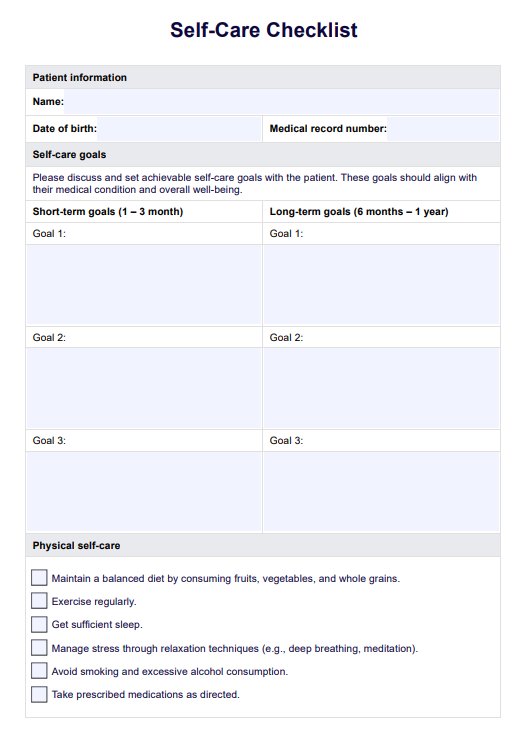Self-care checklists are used by individuals of all ages and backgrounds who prioritize their physical, mental, and emotional well-being. They are particularly popular among those seeking a structured approach to self-care, including individuals managing chronic conditions, those focused on personal growth, and anyone striving for a balanced and healthy lifestyle.

Self Care Checklists
Prioritize health, reduce stress, and enhance life balance with our Self-care Checklist Template. Download our free PDF now!
Self Care Checklists Template
Commonly asked questions
Self-care Checklists are appropriate for daily routines, stress management, chronic condition management, mental health support, recovery from illness or surgery, and personal growth initiatives.
Individuals use self-care checklists to plan, track, and prioritize self-care activities. Users typically follow these checklists daily or weekly, completing physical, mental, and emotional well-being tasks. They serve as reminders and guides, helping people establish and maintain healthy habits, reduce stress, and enhance their overall quality of life.
EHR and practice management software
Get started for free
*No credit card required
Free
$0/usd
Unlimited clients
Telehealth
1GB of storage
Client portal text
Automated billing and online payments











